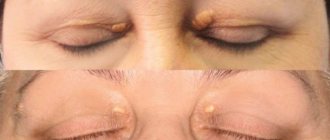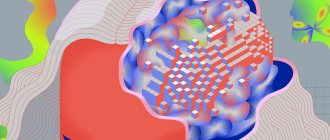Many surveys and studies confirm that every second man in the world over 40 years of age suffers from erectile dysfunction. This means that hundreds of millions of people have sexual dysfunction.
It is difficult for specialists in this field to determine the common cause of the disease, since erectile dysfunction is caused by completely different physical and mental disorders, and sometimes their complexes. Risk factors include any neurological disorder and medication side effects, hypertension, cardiovascular problems, alcohol, diabetes and prostatitis.
Modern means used in professional treatment are quite effective, but many men, embarrassed, do not want to see a urologist and self-medicate unsuccessfully. It is worth noting that urologists and andrologists have a high chance of helping patients with their problems, but only if they are not advanced to the point of impotence. Therefore, don’t delay!
Violation of potency - what is it?
The content of the article
Potential or erectile dysfunction is a specific condition where the penis is capable of erection, but the degree or duration of erection does not provide a balanced sex life for both parties. Depending on the cause, erectile dysfunction can be temporary or chronic.
Erection problems become more common as you age. But there are often cases when failures occur in younger men. A common problem is when, due to poor performance or premature ejaculation, sexual intercourse is only possible for a few minutes. It also happens that ejaculation occurs before or immediately after entering the vagina, which causes the woman to experience significant discomfort.
In some men, low potency is associated with genetic characteristics: a small penis, an unusual or abnormal shape of the organ, which makes his genitals almost unable to penetrate a woman’s vagina.
Erectile dysfunction
All such problems are now successfully treated. For example, there are special implants for penile surgery that can be inserted through minor surgery. Vacuum physiotherapeutic method is popular. Many different drugs have been developed that remove the psychological barrier and prolong sexual intercourse.
Naturally, independent treatment of such problems is simply impossible. Diagnosis and treatment of potency disorders should be carried out exclusively by an experienced urologist-andrologist.
Normal functioning of the penis
Erection - an increase in the size of the penis due to a rush of blood to the cavernous bodies. An erect penis is hard enough for full sexual intercourse. The process starts with sexual stimulation, but spontaneous erections also occur in adolescence.
For an adult man and adolescents, a morning erection is normal - the penis is in an excited state after waking up.
There are no specific standards that determine the time of arousal and what kind of erection is considered normal. It all depends on the individual characteristics of the body.
What affects the duration of excitation:
- sensitivity of the head of the penis;
- frequency of sexual intercourse;
- age, nationality;
- endurance, general physical fitness;
- condition and tone of the perineal muscles;
- degree of excitement.
From a medical point of view, an erection that lasts until orgasm is considered normal. In this case, the normal duration of sexual intercourse is at least 2 minutes. The average time of coitus is 3-15 minutes, less often – up to half an hour. Moreover, after a short sexual intercourse, a man should recover quickly.
Why are most men reluctant to see a doctor?
Surprisingly and illogically, men who have problems with potency do not turn to a urologist because they think that erectile dysfunction is caused by a serious organic pathology. Those. They are afraid not of diagnosis and treatment, but of diagnosis!
Some patients do not believe that a urologist can help with such a sensitive problem. And in vain. Now this problem is well studied and there are already medications for almost any condition that is considered abnormal and leads to erectile dysfunction.
However, treatment can only be prescribed individually, so you need to gather courage and come for an examination. Based on the results, the doctor will definitely select a treatment suitable for the patient based on age, form of application and other parameters.
Symptoms of erectile dysfunction
The clinical manifestations of erectile dysfunction are specific, so doctors do not have difficulties with differential diagnosis.
How to understand that you have impotence:
- decreased or complete absence of sexual desire;
- premature ejaculation – a man cannot control the process of ejaculation;
- sluggish erection even with stimulation;
- decreased sensitivity during sexual intercourse, blurred orgasms;
- after waking up, the penis is not erect.
Erectile dysfunction is not only impotence. Leaving the penis in an erect state for too long is considered a pathology. The disease is called priapism, accompanied by pain in the genital organ.
Causes of potency disorders
Potential disorder or erectile dysfunction goes hand in hand with the following factors:
- persistent and untreated stress;
- excessive alcohol consumption;
- smoking;
- the use of various hormones, steroids, drugs that improve athletic performance, increase muscle mass;
- taking antihypertensive and antidepressant medications;
- obesity;
- blood vessel calcification and arterial disorders;
- psychological problems.
Smoking
Steroid use
Neurological diseases also require attention. Potency problems are caused by various diseases of the brain, spinal cord, nerves involved in erection, and nerve endings.
In all these cases, leaving shame aside, you should rely on the opinion of experts. Only a doctor can carry out the necessary diagnostics and identify the true cause of the disease. After its elimination, potency will be restored.
To eliminate the lack or weakness of an erection, you need to follow the advice of professionals, and in many cases, change your lifestyle as soon as possible. This may seem trivial, but medications alone are not enough to treat potency disorders. You need to organize walks in the fresh air, exercise, good and healthy nutrition, mental stability, and reduce stress. It is important to establish honest communication with your partner.
Sometimes simply quitting smoking can contribute to better erections, sexual pleasure and physical and mental balance.
Impotence - symptoms and treatment
The functioning of the male reproductive system is controlled by the frontal lobes, the sympathetic and parasympathetic nervous system, endocrine-humoral mechanisms and sex hormones.
The frontal lobes of the cerebral cortex control sexual behavior and other genital functions. This occurs with the participation of neurohumoral factors, the somatic and autonomic nervous systems, through which the cortex communicates with the subcortical centers. Damage to the frontal lobes can result from injuries, intoxications, acute circulatory disorders (stroke), as a result of which innervation ceases and discoordination of subcortical centers occurs, including those that control sexual function.[2]
Control of erection and ejaculation (ejaculation) is carried out by neuro-reflex pathways. Thus, erection is controlled by the parasympathetic nervous system , and ejaculation by the sympathetic system . During erection, the elastic fibers of the corpora cavernosa and tunica albuginea relax, and the lumen of the adductor vessels of the penis expands. During ejaculation, the smooth muscles of the vas deferens contract. Through the somatic and autonomic nervous system, the spinal centers communicate with peripheral receptors. Any injury leading to neurosecretion disorders can cause impotence.[5]
Endocrine-humoral mechanisms regulating male sexual function are supported by the testes-pituitary-hypothalamus system, and the production of fertilizing substrates and trophism (cellular nutrition) depend on the level of sex hormones .
Endocrine glands are closely related to the functioning of the genital organs. The male adrenal glands produce 2/3 of androgens and 80% of estrogens, so damage to the adrenal glands can be accompanied by hyper- or hypoandrogenism. The thyroid gland affects the gonads in the same way as the adrenal glands, through the hypothalamic-pituitary system, suppressing or stimulating the production of pituitary hormones, as well as through regulating metabolic processes in tissues.
The liver and kidneys are, to a certain extent, both endocrine and excretory organs and are closely related to the function of the genital organs. The liver metabolizes sex hormones, produces estrogens and androgens, which, when released into the blood, stimulate or inhibit the activity of the testicles. The kidneys maintain homeostasis; along with some metabolic products, the kidneys excrete metabolic products of androgens and estrogens. With diseases of the liver, kidneys, and intestines, the metabolism and excretion of metabolic products of androgens and estrogens is disrupted, which can lead to a disorder of the hormonal function of the testicles.[5]
Vascular disorders in the genital area or organs distant from it can also cause impotence. Circulatory disorders can be a consequence of atherosclerosis, hormonal disorders, hypertension, metabolic, dystrophic disorders or the result of injury, abnormal development of arterial and venous insufficiency of the cavernous bodies of the penis. Sometimes, with normal blood flow, there may be leakage of blood from the cavernous bodies of the penis through the venous network.[3]
How can women help their partners alleviate potency problems?
Couples should initially look for the cause of impotence in their relationship. People often provoke negative reactions from each other, especially when they have conflicts in other areas of their lives.
Interestingly, with male erectile dysfunction, women look for a mistake in themselves, thinking that they are bored or a rival has appeared. This leads to attacks of jealousy that paralyze and confuse the man. A scandal arises because he is suffering and wants a quick solution to the problem, rather than listen to his partner’s accusations.
If the partner is patient and loves the man, then the treatment can be even more effective. However, if dialogue fails and couples cannot communicate on basic issues, then potency problems only get worse.
What is potency?
Male potency is a man's ability to have sexual intercourse. It is characterized by the degree of tension of the penis, as well as the speed of erection and the intensity of sexual activity. Accordingly, a violation of potency is usually called the term “impotence”. This disruption of the reproductive system is accompanied by problems achieving and maintaining an erection. Impotence is also accompanied by a decrease in sexual desire.
How to behave as the wife of an impotent man
The first thing to say is that impotence is a family problem. Therefore, under no circumstances should a wife distance herself from her husband. It should also be understood that erection treatment cannot be effective if the wife ridicules and criticizes her husband. Moreover, such behavior of the wife will further aggravate the situation.
It is worth realizing that the diagnosis “impotent” is not a death sentence. Treatment of male potency is possible only if the wife supports her husband. Therefore, women should not panic and blame their other half for all mortal sins. On the contrary, they need to stay close to their husband and help him overcome this problem by referring him to a doctor such as a urologist andrologist.
Types of erectile dysfunction
Depending on the cause of occurrence, the following types of impotence are distinguished:
- Endocrine. Associated with a lack of the hormone testosterone.
- Anatomically determined. It occurs due to curvature of the penis, its partial or complete removal, pain due to a hernia in the scrotum.
- Neurogenic. It develops against the background of diseases of the nervous system, for example, neuropathy or sclerosis.
- Vascular. It is explained by problems with blood vessels, which lead to impaired blood supply to the penis and the inability to achieve an erection.
Treatment of impotence - not to lose your dignity
Before treating impotence in men, it is necessary to diagnose erectile dysfunction. The following methods can be used for this:
- physical examination;
- blood and urine tests;
- Ultrasound;
- psychological test.
The listed diagnostic methods will allow you to assess the quality of blood supply to the genital organ, test nerves for sensitivity, identify depression and other psychological disorders, and also identify concomitant diseases (cardiovascular and endocrine), which may be the root cause of impotence.
When answering the question whether impotence can be cured, it is worth noting that there are 2 types of this pathology:
- vascular impotence;
- impotence for psychological reasons.
In the first case, treatment of erectile dysfunction in men involves the use of surgical methods that increase the flow of arterial blood into the penis and reduce venous outflow. But impotence for psychological reasons is treated through psychotherapy and lifestyle changes.
Preventive measures
For long-term results of therapy, you should follow the doctor’s recommendations regarding lifestyle:
- quit smoking, drugs, alcohol;
- normalize weight;
- visit a urologist regularly (at least once a year);
- have sex with a regular partner;
- avoid stress;
- solve health problems in a timely manner.
Remember: only a doctor can accurately determine how to treat impotence in a particular case. Therefore, if characteristic symptoms appear, seek help from the Medical On Group clinic.









